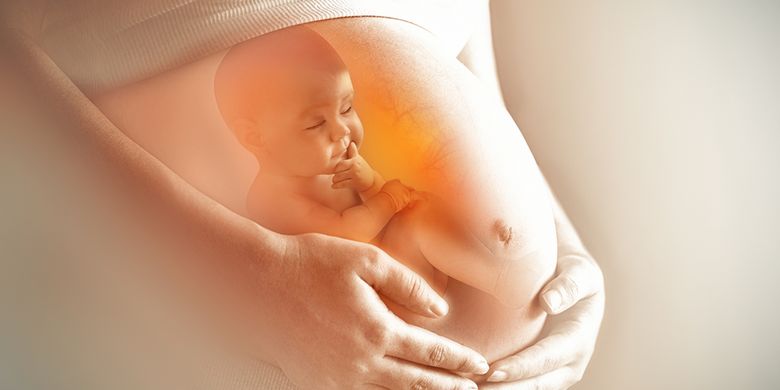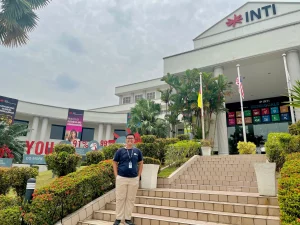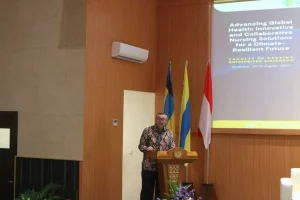Human Immunodeficiency Virus (HIV), syphilis, and hepatitis B can be transmitted from an infected mother to her infant during pregnancy, upon delivery, or through breastfeeding and cause morbidity and mortality. In 2005, 2.4 million children were living with HIV. Syphilis during pregnancy is associated with premature delivery, spontaneous abortion, stillbirth, and transmission to a baby called congenital syphilis. Hepatitis B virus (HBV) can cause chronic hepatitis B, and the risk for the development of chronic HBV infection is strongly associated with the age of exposure. The risk of chronic disease in infants exposed to HBV from their mother is 90%. HBV transmission from the mother to her child is still an essential source of hepatitis B cases.
World Health Organization (WHO) has proposed an integrated approach to achieve triple elimination of mother-to-child transmission (MTCT). This policy was followed by our country with the issuance of Minister of Health Decree Number 52 of 2017 by Ministry of Health. This effort is made to ensure that even though the mother is infected with HIV, syphilis, or hepatitis B, it is not transmitted to her child. Several steps in this effort are to carry out early detection and provide immediate treatment if detected. This triple elimination is carried out starting from the first to third level or tertiary health facilities such as at Dr. Hospital. Soetomo as a referral center.
We conducted this study to evaluate the implementation of triple elimination in RSUD Dr. Soetomo Surabaya in 2018. The results of this study found that the characteristics of new pregnant women patients in 2018 were mostly in the category of early adult age, high school education/equivalent, housewives, and the referral patients from other hospitals. Detection of HIV, syphilis, and hepatitis B altogether was done in 97 (14.1%) patients, detection of HIV and hepatitis B was done in 149 (21,6%) patients, detection of HIV and syphilis as well as syphilis and hepatitis B was done in 6 (0,9%) patients. Patients who were only tested for HIV were 21 (3,0%) while patients only tested for hepatitis B were 200 (29%). There were no pregnant women with HIV, syphilis, and hepatitis B infection. There were 29 HIV patients (4.2%), syphilis 3 patients (0.4%), hepatitis B 26 patients (3.8%) and there were 2 patients with co-infection of HIV and hepatitis B. The most risk factor of HIV was from spouses with HIV risk from 23 patients (79.3%) while the risk factor for syphilis and hepatitis B was from multiple sexual partners. Treatment of HIV cases was the administration of antiretroviral (ARV) in 25 patients (86.2%) and immediate cesarean section in 4 patients (13.8%). The treatment for syphilis cases was injection of benzathine penicillin G (BPG) in 2 patients (66.7%). Treatment for hepatitis B cases was referral to the Internal Medicine clinic for 13 patients (50.0%) but only one patient (3.8%) tested for HBeAg, and one patient (3.8%) was tested for HBV DNA and then received antiviral (tenofovir).
The conclusion of this study, early detection of HIV, syphilis and hepatitis B in pregnant women in hospitals can still be increased. Recording in medical records can also cause data on the detection below the target because most pregnant women are referred patients who may have been examined at health facilities before, but the results were not recorded. Handling cases of HIV, syphilis, and hepatitis B are quite good. Case management requires collaboration with specializations in other fields, such as internal medicine and skin and venereal disease. The use of electronic medical records is expected to facilitate documentation as well as referrals and joint care.
Author: Dr.Afif Nurul Hidayati,dr.,Sp.KK(K)
Details of the study can be viewed on:
https://www.balimedicaljournal.org/index.php/bmj/article/view/3376
Dealing with tests and treatments for HIV, syphilis, and hepatitis B infection to prevent mother-to-child transmission (MTCT) from a tertiary hospital in Indonesia
Maya Wardiana , Cita Rosita Sigit Prakoeswa , Sawitri , Rahmadewi , Linda Astari , Budi Prasetyo , Budiono , Afif Nurul Hidayati









